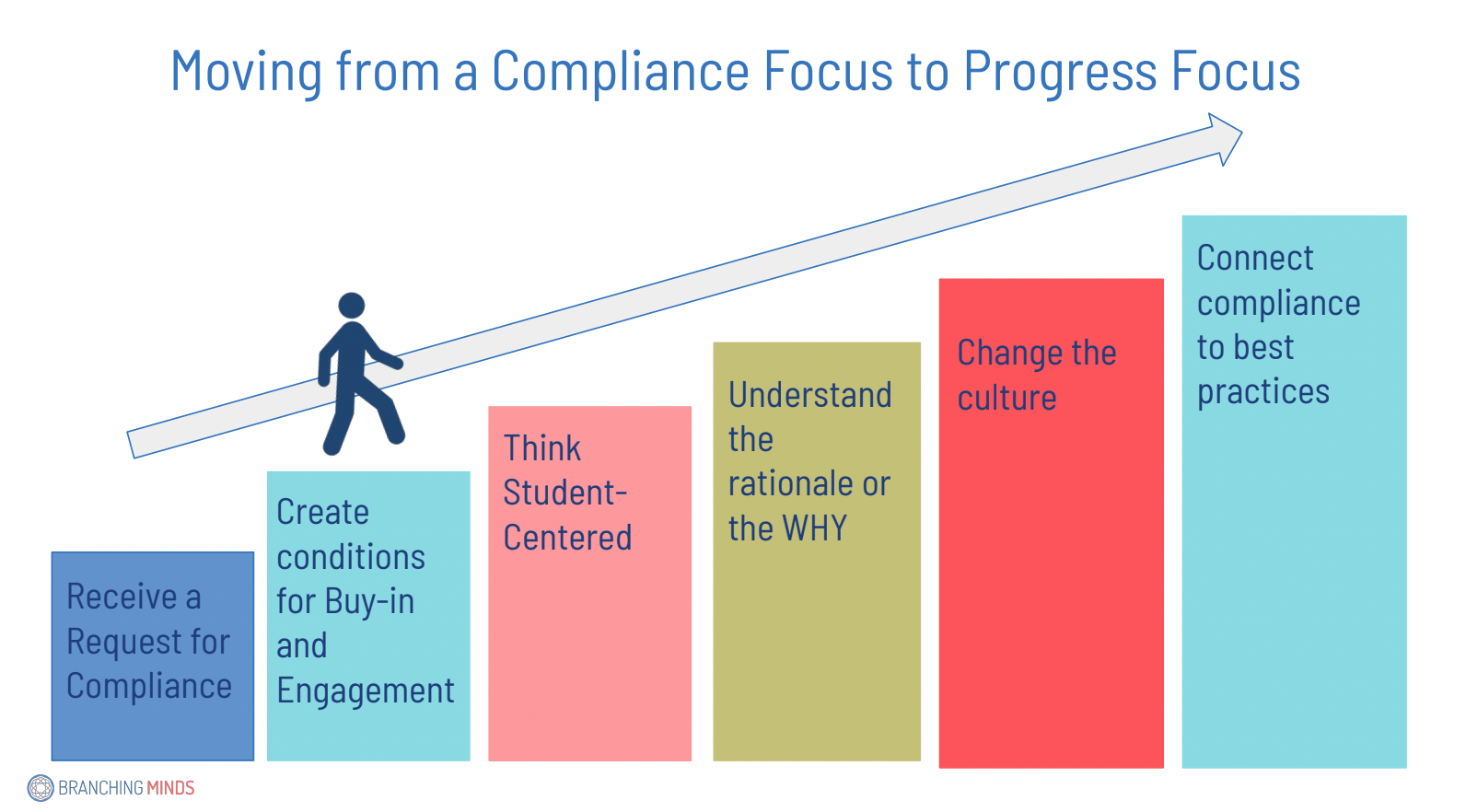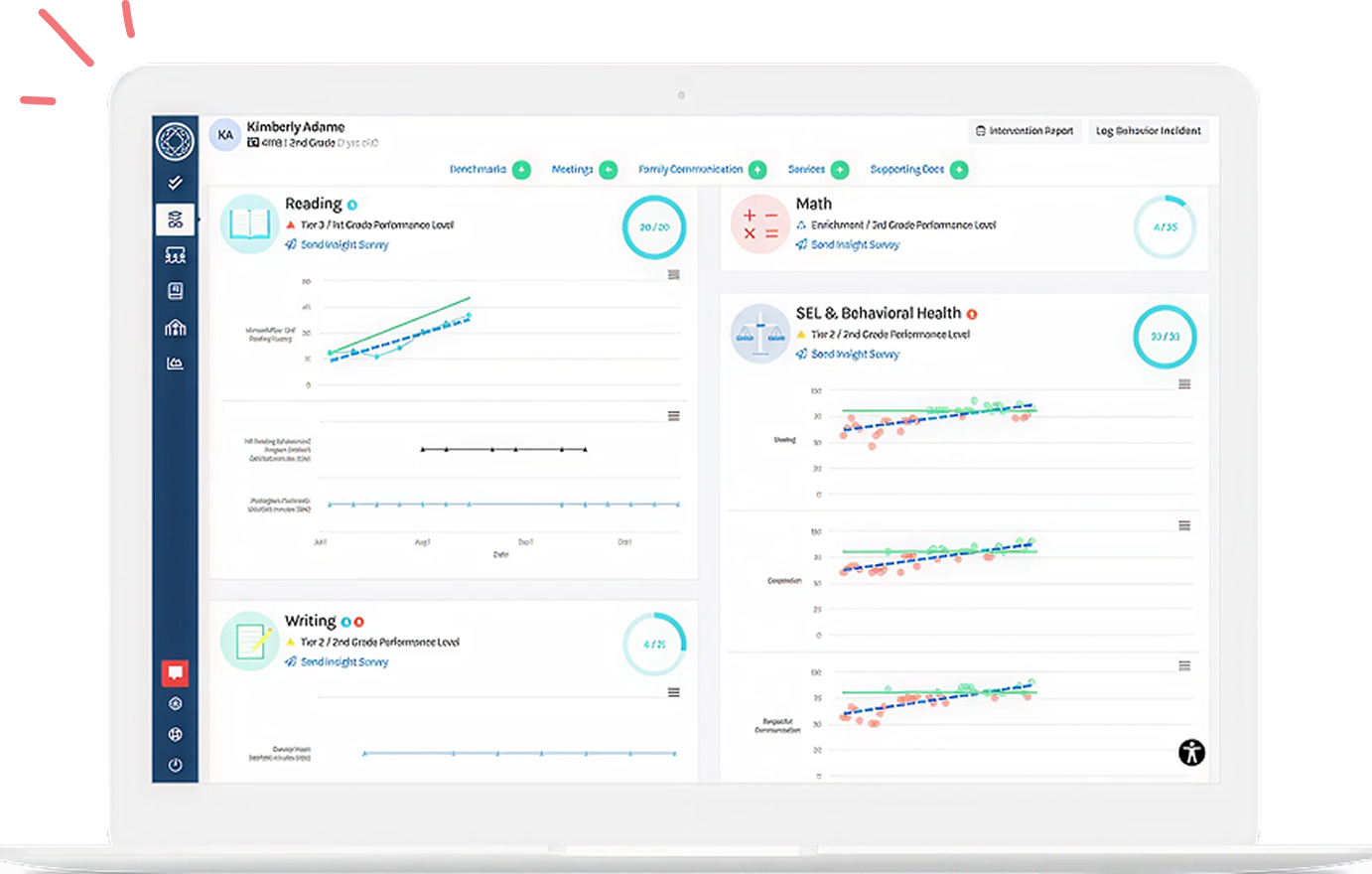Educators are painfully familiar with having their work and priorities shifted at the will of new legislation and policies. State board educations establish state standards, federal and state policies guide requirements, and local district leadership establishes procedures for what and how teachers are required to teach. It's up to principals and campus instructional leaders to be a bridge for the teachers to understand the purpose and rationale behind these policies and how they align with or influence your school goals.
A Multi-Tiered System of Supports is not just one more thing. Yes, it is an avenue that will help your team comply with policies and regulations, but MTSS, at its heart, is intended to help teachers connect with the “why” of education as they support their students in achieving success.
In this webinar, Branching Mind consultants Teresa Bunner and Dr. Jessica Shackil outline steps to move beyond a compliance focus to a progress focus. Education policy is a reality that schools must comply with, but to make progress for students, we have to understand the why behind the policy and change the culture to connect with the best practice. As a leader, it is important to dig into why this policy exists, its implications for your school, and how to align it with your goals.
| Want to skip ahead to the webinar recording? WATCH THE WEBINAR |

4 Steps to Move From Compliance Focus To Progress Focus
-
Transformational Leadership:
To create conditions for buy-in and engagement from all stakeholders, it takes intentional work on behalf of leaders. Creating conditions does not just mean a one-and-done professional development session about this new policy but involves building a culture of trust and continuous professional improvement. Accountable transformational leadership is not a top-down approach, but rather a culture that inspires others to take action and do their best work. -
Student-Centered:
Being progress-focused requires all to be student-centered. Lean into what your data reveals about your core instruction. This involves thinking about the whole child. At this step, it's important to engage all stakeholders in this work and ensure objectivity. -
Get To the Why:
Part of the work of leaders is to help your staff understand the rationale and why behind the policy or the work in place. Leaders shouldn’t be afraid of questions, either taking them or asking them. - Open the floor for questions for people to seek understanding, requiring a strong culture of trust built with staff.
- People often question new things because they want to understand how it impacts them and their work and why it matters. Teachers want to know how this impacts their day to day. Time spent in these types of conversations is never wasted. (FREE DOWNLOAD: Understanding the Why pdf)
-
Change the Culture:
We change our culture in order to change practice in order to bring about change for students. Cultural change can begin when your language around compliance changes, because language influences thoughts and perceptions of culture. How information and policies are communicated can set the tone for whether a connection can be made to best practices. We don't often have control over what gets handed down to us, but we do have control over how we approach it.
Connecting Compliance With Best Practices
Education policies and regulations can lead to a “checklist” approach focused on compliance, but when leaders take charge to understand the rationale and communicate that to their staff, the mindset around compliance can begin to change. MTSS becomes a way of doing business that prioritizes best practices and keeps student progress at the center of everything educators do each day.
WATCH THE WEBINAR
(And get ready to take notes ✍️)
Related resources you may find helpful:
SIGN UP FOR OUR NEWEST WEBINAR SERIES:

About the author
Larissa Napolitan
Larissa Napolitan is the Content Marketing Manager at Branching Minds and host of the Schoolin’ Around podcast, where she spotlights innovative voices and practices shaping education today. A former middle school teacher and instructional coach, Larissa draws on her classroom experience to create meaningful content that connects research, storytelling, and practical insights for school and district leaders. She is passionate about amplifying educator voices and supporting the growth of all students.

Your MTSS Transformation Starts Here
Enhance your MTSS process. Book a Branching Minds demo today.


















.jpg?width=716&height=522&name=Better%20MTSS%20Meetings%20Blog%20(preview).jpg)
.png?width=716&height=522&name=The%20Power%20of%20Good%20Data%20(blog).png)